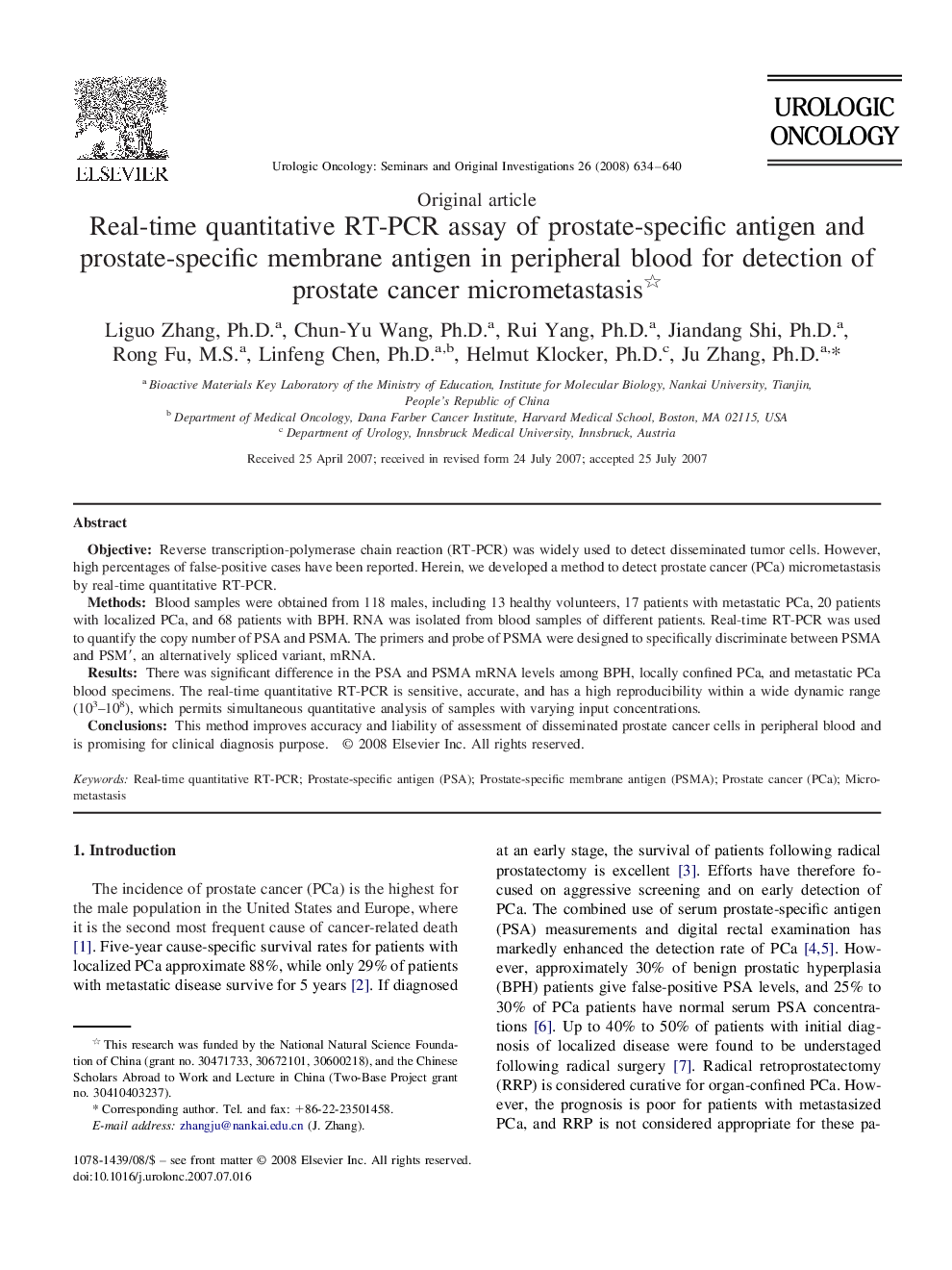| Article ID | Journal | Published Year | Pages | File Type |
|---|---|---|---|---|
| 4001113 | Urologic Oncology: Seminars and Original Investigations | 2008 | 7 Pages |
ObjectiveReverse transcription-polymerase chain reaction (RT-PCR) was widely used to detect disseminated tumor cells. However, high percentages of false-positive cases have been reported. Herein, we developed a method to detect prostate cancer (PCa) micrometastasis by real-time quantitative RT-PCR.MethodsBlood samples were obtained from 118 males, including 13 healthy volunteers, 17 patients with metastatic PCa, 20 patients with localized PCa, and 68 patients with BPH. RNA was isolated from blood samples of different patients. Real-time RT-PCR was used to quantify the copy number of PSA and PSMA. The primers and probe of PSMA were designed to specifically discriminate between PSMA and PSM′, an alternatively spliced variant, mRNA.ResultsThere was significant difference in the PSA and PSMA mRNA levels among BPH, locally confined PCa, and metastatic PCa blood specimens. The real-time quantitative RT-PCR is sensitive, accurate, and has a high reproducibility within a wide dynamic range (103–108), which permits simultaneous quantitative analysis of samples with varying input concentrations.ConclusionsThis method improves accuracy and liability of assessment of disseminated prostate cancer cells in peripheral blood and is promising for clinical diagnosis purpose.
